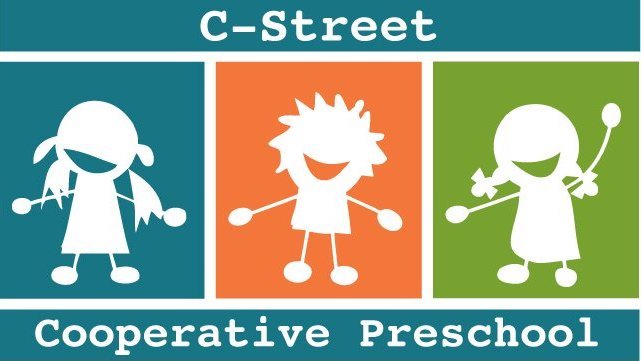Philosophy
Play-based curriculum is more than just play! We believe in teaching the whole child through cooperative learning and play-based curriculum.
Play-based Curriculum
Research conducted over the last forty years has shown that young children process and retain new information if they are allowed to discover it and incorporate it into their own play. At C-Street Cooperative Preschool we transform play within a supportive and carefully crafted environment into an open-ended curriculum for learning and self-development. See these evidence-based articles supporting the power of play:
The National Association of Education for Young Children
The Case of Brain Science and Guided Play: A Developing Story
TedX talk on the “Decline of Play”
“As Children's Freedom Has Declined, So Has Their Creativity” - Psychology Today
Our curriculum integrates learning themes with a rich set of activities. When we study a particular theme - birds, the ocean, work, family, color, numbers, and letters, to name a few - we thread this theme throughout every activity in the classroom. Children engage knowledge about themes through science exploration, dramatic and imaginative play, songs, craft, and art. Threaded through such activities, themes create a network of engaged knowledge. As children become immersed in the theme throughout every activity, they learn to use emerging concepts related to this theme rather than simply recite facts.
Teaching the Whole Child
We believe in teaching the whole child: Our curriculum has been developed to prepare each child for her or his Kindergarten year academically, socially and physically. Each object, each activity, each space in the classrooms of C-Street is designed and offered to students in such a way that children of diverse ages and stages of growth can learn something important to their own growth by engaging it.
Children learn best by doing, playing, and making choices. Much of our effort centers on having children explore the world. To this end we provide materials that children can handle themselves and that are easily accessible. Children can type on real typewriters, squeeze potter’s clay, mix ingredients for snack, or deconstruct an old radio. Children are offered a choice of activities each day as well as the ability to move freely between three classrooms. This decision-making process allows children to discover their preferences and style of learning, to work in small groups, make friends, take directions, to be in a quiet spot, or join in an active game. During most of the school day, the age groups are mixed, as in a real family, so that the children may give and receive help from each other. On any given day, we have two teachers, two parents and 24 children for student-teacher ratio of 6 : 1.
Cooperative Learning
Cooperative learning and teaching is fundamental to the C-Street philosophy. We dedicate ourselves in large and small ways to home and school working together. We are actively receptive to an exchange of ideas between our families and the school. More than this, the vitality of the school depends on this exchange. Parents play a crucial role in the life of the school. Each parent assists in the classroom and holds another job related to the co-op. The families of C-Street become a community too, and it is our goal that the parents, like the children, come to make friends, share and learn from each other.

